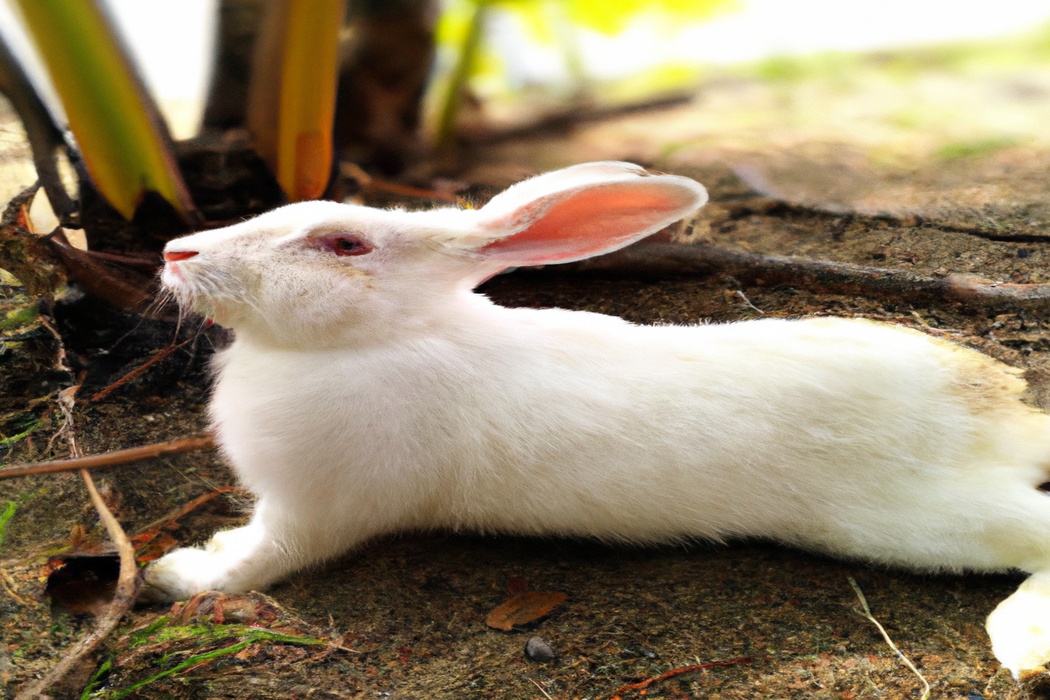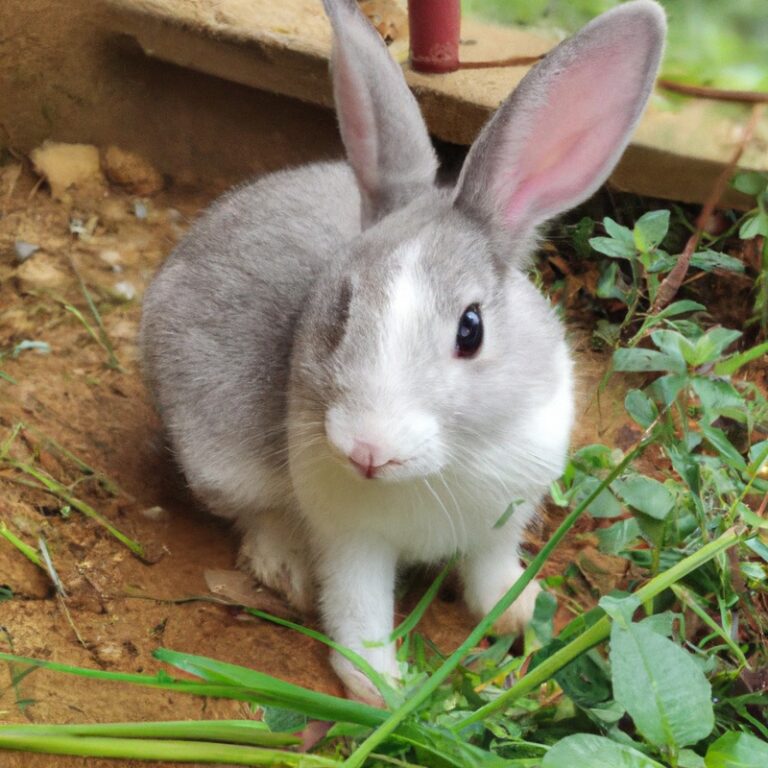Should I Cover My Rabbit’s Cage At Night for a Peaceful Sleep?
Key Takeaways:
- Covering your rabbit’s cage at night provides a sense of security and helps promote better sleep.
- A covered cage can also help regulate temperature and reduce noise, creating a more peaceful environment for your rabbit.
- However, it is essential to ensure proper ventilation and check for any potential hazards when using a cover.
- Ultimately, the decision to cover your rabbit’s cage at night depends on your rabbit’s individual preferences and needs.
Have you ever wondered if you should cover your rabbit’s cage at night?
It’s a common question among rabbit owners who want to create the best environment for their furry friends.
In this article, we’ll dive into the importance of covering your rabbit’s cage at night and explore the factors to consider when making this decision.
We’ll also discuss how to properly cover your rabbit’s cage and address some frequently asked questions.
So, grab your carrot snacks and let’s hop right into it!
| Pros of covering the rabbit’s cage at night | Cons of covering the rabbit’s cage at night |
| Provides warmth and insulation during cold weather | May restrict ventilation and lead to poor air quality |
| Reduces light exposure and promotes better sleep | Could increase anxiety or stress in some rabbits |
| Offers a sense of security and privacy | May hinder observation of the rabbit’s behavior and health |
| Helps to block out noise and distractions | Could make it harder for the rabbit to adjust to daytime lighting |
| Protects against potential predators or disturbances | May limit the rabbit’s ability to see and explore its surroundings |
The Importance of Covering Your Rabbit’s Cage at Night
Covering your rabbit’s cage at night is important for creating a safe, comfortable environment and protecting against drafts and temperature changes.
Creating a Safe and Comfortable Environment
To create a safe and comfortable environment for your rabbit, there are a few important things to consider. First, make sure their cage is the appropriate size, allowing them space to hop, stretch, and play.
Provide them with bedding that is soft and comfortable, such as hay or fleece.
Additionally, ensure their cage is located in a quiet area to minimize stress. Lastly, make sure there are no hazardous items or wires within reach of your rabbit.
By taking these steps, you can create a safe and cozy place for your furry friend.

Protecting Against Drafts and Temperature Changes
To protect your rabbit against drafts and temperature changes at night, make sure their cage is placed in a warm and draft-free area of your home.
Avoid placing their cage near windows or doors that may let in cold air.
Use blankets or covers to insulate their cage, but ensure there is adequate ventilation to prevent overheating.
Monitor the temperature regularly and adjust accordingly.
Additionally, consider providing your rabbit with extra bedding or a cozy hiding spot for added warmth.

Reducing Stress and Promoting Better Sleep
Reducing stress and promoting better sleep for your rabbit is important for their overall well-being. To achieve this, provide a safe and quiet environment by covering their cage at night.
This helps block out excess noise, light, and movement that can disturb their sleep.
Additionally, it creates a cozy and secure space for them to relax. Remember to use breathable materials and ensure proper ventilation while covering the cage.

Factors to Consider When Deciding to Cover Your Rabbit’s Cage
Consider the cage location and surrounding environment, as well as the natural behavior and preferences of rabbits.
Cage Location and Surrounding Environment
When deciding where to place your rabbit’s cage, it’s important to consider the surrounding environment.
The cage should be located in a quiet area of your home, away from loud noises and excessive foot traffic.
Avoid placing the cage near drafts or direct sunlight, as these can be uncomfortable for your rabbit.
Additionally, make sure the cage is not too close to other pets or potential predators.
Providing a calm and comfortable environment will help ensure your rabbit feels safe and secure in their cage.
Rabbits’ Natural Behavior and Preferences
Rabbits are naturally crepuscular animals, which means they are most active during dawn and dusk. They prefer to have a consistent routine and feel secure in their environment.
Rabbits also have a strong instinct to burrow and hide, which is why providing them with hiding spots and tunnels is important.
Additionally, rabbits are prey animals and can become easily startled or stressed by loud noises or sudden movements. Creating a quiet and calm environment for your rabbit is beneficial for their overall well-being.
How to Properly Cover Your Rabbit’s Cage at Night
Ensure the cage is covered with suitable materials, provides adequate ventilation, and allows for easy access for both you and your rabbit.
Choosing the Right Materials
Choosing the right materials to cover your rabbit’s cage at night is an important aspect of ensuring their comfort and safety. When selecting materials, opt for ones that are breathable and provide sufficient ventilation, such as natural fabrics like cotton or linen.
Avoid materials that can be chewed or pose a choking hazard, such as plastic or mesh.
Additionally, consider the temperature of your rabbit’s environment and choose materials that can help regulate their body heat. Look for materials that are easy to wash and maintain.
Providing Adequate Ventilation
To provide adequate ventilation for your rabbit’s cage, make sure it is not completely enclosed.
Adequate airflow is important to maintain a healthy environment for your furry friend.
Avoid covering the cage with materials that restrict airflow, like heavy blankets or plastic.
Instead, use breathable materials, such as a mesh or wire cover, that allow for proper air circulation.
This will help prevent the buildup of condensation and keep your rabbit comfortable and happy.
Ensuring Easy Access for You and Your Rabbit
To ensure easy access for you and your rabbit, it’s important to consider a few key factors.
First, the location of the cage should be easily accessible for cleaning, feeding, and spending time with your rabbit.
Secondly, make sure the cage has a large enough door or opening for you to comfortably reach inside and interact with your furry friend.
Additionally, provide ramps or steps to make it easier for your rabbit to access different levels within the cage.
Lastly, consider the design of any coverings or enclosures to ensure they can be easily removed when needed.
Frequently Asked Questions
Can rabbits sleep without a cage cover?
Yes, rabbits can sleep without a cage cover. They are crepuscular animals, which means they are most active during dawn and dusk.
Rabbits naturally seek out safe and secure places to rest and sleep during the day, even without a cover.
However, providing them with a cozy and secure environment can help them feel more comfortable and reduce any potential anxiety. Giving them a hideaway spot, like a covered den or a comfortable bed inside their cage, can be beneficial for their overall well-being.
Remember to ensure good ventilation and adequate space for their needs.
How can I tell if my rabbit is uncomfortable at night?
At night, you can tell if your rabbit is uncomfortable by observing their behavior.
Some signs of discomfort include restlessness, pacing, excessive scratching or grooming, grinding teeth, and hiding.
If your rabbit is making loud noises, thumping their hind legs or displaying aggressive behavior, it may indicate distress.
It’s important to provide a quiet, comfortable environment for your rabbit to sleep in and ensure they have access to a cozy, temperature-controlled space.
Are there any risks in covering my rabbit’s cage at night?
Covering your rabbit’s cage at night may pose some risks. Firstly, it can restrict air circulation, leading to poor ventilation and increased humidity within the enclosure.
This can create a breeding ground for bacteria and increase the risk of respiratory infections for your rabbit.
Secondly, if the cover is not securely fastened or if there are loose strings, your rabbit may become tangled or suffocate. Finally, covering the cage may block out natural light, which is important for a rabbit’s mental and physical well-being.
Final Verdict
Covering your rabbit’s cage at night is an important step in creating a safe and comfortable environment for your furry friend. By protecting against drafts and temperature changes, you can ensure their well-being.
Additionally, covering the cage reduces stress and promotes better sleep for your rabbit, leading to a happier and healthier pet.
Factors to consider include the cage’s location and the rabbits’ natural behavior and preferences. When properly covering the cage, choose the right materials, provide adequate ventilation, and ensure easy access for you and your rabbit.
Remember, a happy rabbit is a well-rested rabbit.







